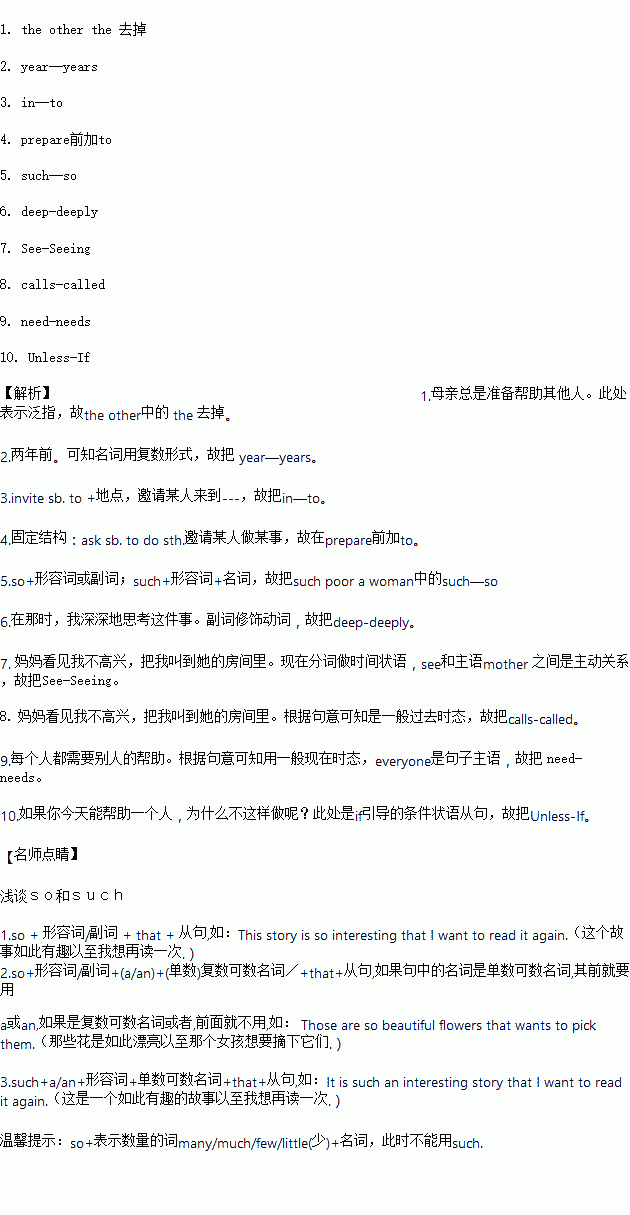题目内容
下面这篇短文共有10处语言错误,每句中最多有两处。错误涉及一个单词的增加、删除或修改。
增加:在缺词处加一个漏字符合(^),并在其下面写出该加的词。
删除:把多余的词用斜线(\)划掉。
修改:在错的词下划—横线,并在该词下面写出修改后的词。
注意:1.每处错误及其修改均仅限一词;
2.只允许修改10处,多者(从第11处起)不计分。
My mother is always ready to help the others. I still remember one afternoon two year ago when my mother invited a poor woman in our home for a meal. She asked me prepare a meal for the woman. I didn’t understand my mother. Why should I make a meal for such poor a woman? I thought deep about it at that moment. See that I was unhappy, Mother calls me to her room. She said to me, “I know you are unhappy. But everyone need others’ help, and maybe you will have troubles tomorrow. Unless you can help somebody today, why not just do it?”
练习册系列答案
 名校课堂系列答案
名校课堂系列答案
相关题目


 encouragement to ourselves. We should also be quick to give ourselves a pat on the back. The next time you finish a project, do well in a test, or finally clean your room, join me in saying, “Good job!”
encouragement to ourselves. We should also be quick to give ourselves a pat on the back. The next time you finish a project, do well in a test, or finally clean your room, join me in saying, “Good job!”